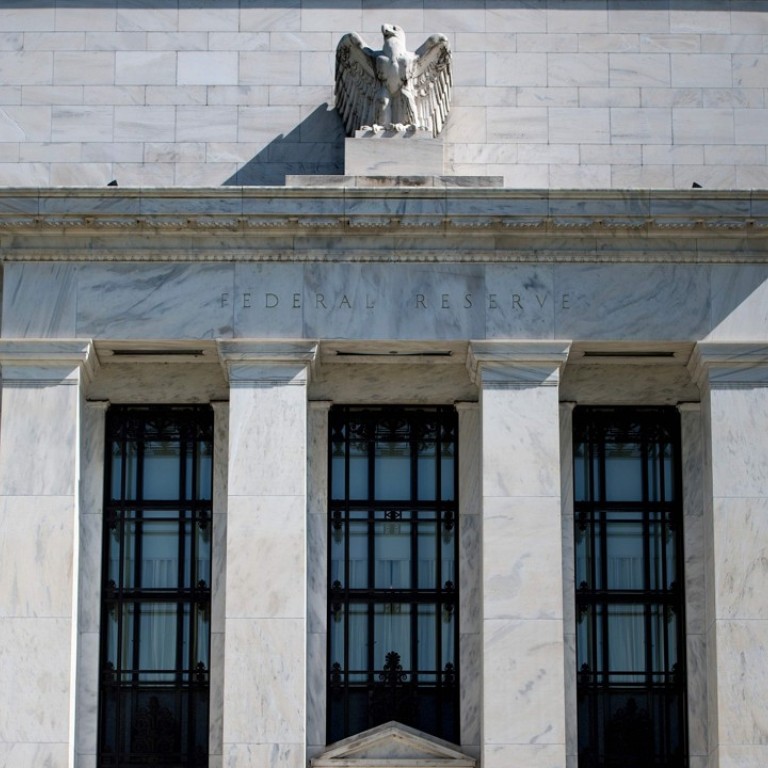
Hong Kong, Chinese stocks slide on ZTE slump, rate rise fears
The Hang Seng Index loses 1.22pc to end at 30,725.15. Market’s focus turns to potential interest rate increase by the US Federal Reserve on Thursday
Hong Kong and mainland markets fell on Wednesday, led by huge declines in ZTE shares, after the Chinese telecom equipment maker agreed to pay a US$1.4 billion fine as part of a deal to lift US sanctions, dragging down other smartphone suppliers and telecom operators.
ZTE also agreed to make changes in senior leadership and replace its board of directors.
The optimism from the signing of the US and North Korea joint declaration which was aimed at the complete denuclearisation of the Korean peninsula faded, as no major surprises were delivered.
The market’s focus turned instead to a potential interest rate increase by the US Federal Reserve on Thursday, and the accompanying policy language, for clues to how much growth can be expected from the economic tightening.
Data earlier this week showed that in the 12 months through to May, the US’s consumer price index accelerated 2.8 per cent, marking the biggest forward move since February 2012, after rising 2.5 per cent in April.
The People’s Bank of China is expected to follow the US by raising the interest rate it charges commercial lenders on the reverse repurchase agreements (repos) in its open-market operations, while the Hong Kong Monetary Authority will also follow suit with a rise in its base lending rate, as a result of the Hong Kong dollar’s peg to the US dollar.
The market is getting nervous again and stocks are under pressure to correct from their recent rally
“The market is getting nervous again and stocks are under pressure to correct from their recent rally,” said Ben Kwong Man-bun, director, KGI Asia.
The Hang Seng Index lost 1.22 per cent or 377.91 points to end at 30,725.15 and the Hang Seng China Enterprises Index also fell 1.40 per cent or 170.94 points to 12,035.63.
ZTE shares tumbled 41.6 per cent to HK$14.96 in Hong Kong after resuming trade from a suspension of nearly two months. Its Shenzhen-traded stock slumped by the 10 per cent daily cap to 28.18 yuan.
Smartphone suppliers and telecom operators dropped in tandem. AAC Technologies fell 4.1 per cent to HK$121.60, the worse performing blue chip. Sunny Optical Technology (Group) dropped 2.5 per cent to HK$168.60.
China Mobile lost 1.3 per cent to HK$70.85 and China Unicom (Hong Kong) was lower by 1.2 per cent to HK$10.18.
Pharmaceuticals and Chinese financials were big losers too. CSPC Pharmaceutical Group dropped 2.7 per cent to HK$24.95, Genscript Biotech slumped 7.1 per cent to HK$23.50 and 3SBio sank 4.7 per cent to HK$19.26.

Mainland stocks also fell after China credit data for May slowed more than expected, with the continued crackdown on the shadow banking sector triggering expectations of further defaults in the bond market and spreading worries into the stock market.
Chinese banks extended 1.15 trillion yuan (US$179.6 billion) in net new yuan loans in May, below analyst expectations, the official data showed on Tuesday.
Broad M2 money supply grew 8.3 per cent in May from a year earlier, missing forecasts of an expansion of 8.5 per cent in a Thomson Reuters poll of economists and compared with 8.3 per cent in April.
Outstanding yuan loans grew 12.6 per cent from a year earlier, slower than an expected 12.7 per cent rise and compared with a rise of 12.7 per cent in April.
The Shanghai Composite Index slid 1 per cent or 30 points to 3,049.80 while the CSI 300 – which tracks the large caps listed in Shanghai and Shenzhen – dropped 1 per cent or 37.61 points to 3,788.34.
The Shenzhen Composite Index slid 1.6 per cent or 27.73 points to 1,731.43 and the Nasdaq-style ChiNext shed 1.6 per cent or 26.88 points to 1,685.89.
“Money market rates remain low because liquidity is being diverted into the interbank market for repos and government bonds,” said Larry Hu, economist at Macquarie Capital.
“But in actual fact, credit is tight and deteriorating fast as corporates cannot obtain bank lending.”

